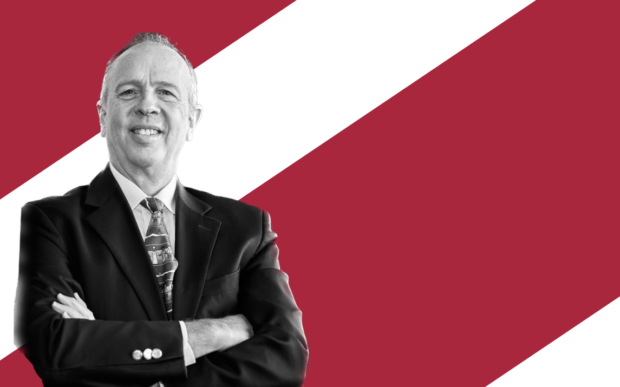HOME | ABOUT US | MEDIA KIT | CONTACT US | INQUIRE
HOME | ABOUT US | MEDIA KIT | CONTACT US | INQUIRE

President & CEO of Lawrence Memorial Hospital, Russ Johnson.
Posted October 18, 2023
"I have been in executive leadership in healthcare for almost 39 years now and privileged to have worked with amazing men and women who consistently search for the balance required between operating an outstanding clinical organization with the highest quality and patient safety..."
Q: What do you consider your organization’s most significant achievement or highlight over the past year?
A: I think our most significant achievement has to be related to the almost 2,000 people who make up our workforce and who have continued to remain a part of healthcare in our community through very difficult circumstances. So many of these people could work almost anywhere in the country, and we are very proud to have them as part of our team.
Q: What do you see as the odds of a recession between now and the end of 2024?
A: The odds are relatively low, and we’re beginning to see some signals to that effect. While unemployment remains low, we are seeing inflationary markers staying in check and reducing from the previous 18 months. Outside of major economic, weather-related, or military actions, I think we will see 2024 being a step towards a stable economy with more reasonable interest rates and inflation under control.
Q: We have the new KCI up and running; what do you believe is the Next Big Thing we should pursue in the Kansas City region?
A: The new KCI was a vital project that is already returning yield to our community in the form of the NFL draft and the World Cup. Maintaining our commitment to public transportation connecting the plasma, Westport, Crown Center, and downtown areas, including the farmers market, is vital to a vibrant city culture and economy. I would also add that the new Panasonic battery plant and other similar development projects should be seized upon to define Kansas City as a desirable technology hub that provides alternatives to the coasts at a much lower cost and higher quality of life.
Q: Did you have a key mentor on your way to leadership? If so, who was it, and what was the most important thing you learned from him or her?
A: I have been in executive leadership in healthcare for almost 39 years now and am privileged to have worked with amazing men and women who consistently search for the balance required between operating an outstanding clinical organization with the highest quality and patient safety possible while maintaining financial stewardship that enables the sustainability of our complex and capital-intensive organizations. My first mentor was Sam Wallace, who was then the CEO of St. Luke’s Methodist in Cedar Rapids, Iowa. Sam taught me to keep my eyes on the forward horizon with the greater strategy and purpose in mind and not to ‘lose the forest for the trees.
Q: What’s first on your reading list each morning?
A: Candidly, first thing in the morning, I’m checking my emails to see what may have cropped up. Beyond that, I look at business and political highlights from my newsfeed and CNN, the Atlantic, the Economist, and then NPR on the drive to work.
Q: What is the most essential skill you look for in leadership-level hires?
A: Emotional Intelligence and specifically the ability to connect with people in a manner that builds trust and relationships. A quick second behind that—adaptability, flexibility, and being able to take a creative but disciplined approach to problem-solving.
Q: If you could start a charity, what would the mission be?
A: Supporting early childhood development and strengthening families, with a definition of family as people in a loving relationship caring for children.
Q: Over the coming year, do you plan to add/reduce staff or hold at current levels?
A: Healthcare is under tremendous financial pressure. We have to gain efficiencies in our operation while keeping abreast of the health needs of our community. I suspect this will keep us about even